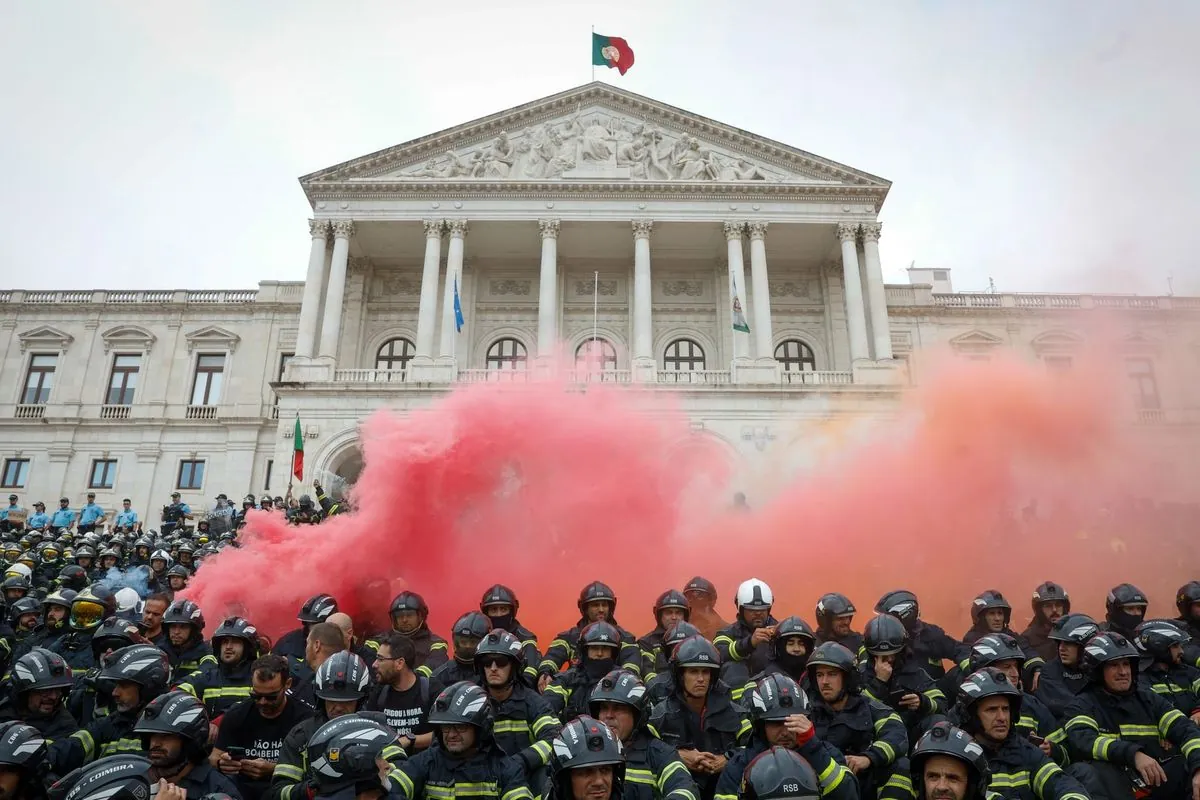Portuguese Firefighters Rally at Parliament for Improved Conditions
Hundreds of firefighters demonstrated outside Portugal's parliament, demanding better pay and working hours. The protest, organized by a national union, follows recent extensive wildfire battles.

In a striking display of solidarity, hundreds of Portuguese firefighters gathered outside the Assembleia da Republica in Lisbon to voice their concerns over working conditions. The demonstration, organized by a national firefighting union, aimed to draw attention to the pressing issues of inadequate compensation and demanding work schedules.
The protestors, fully equipped in their firefighting gear, occupied the steps leading to the national parliament. Their presence was met with a line of police officers, who linked arms to maintain order. To emphasize their message, the firefighters employed visual and auditory tactics, including the use of smoke canisters, flares, and sirens. One participant held a sign simply stating "Shame," encapsulating the sentiment of the group.
This protest comes in the wake of extensive wildfire battles that Portuguese firefighters faced last month. Portugal has a long history of combating wildfires, with some of the most severe occurrences in recent years. The country's climate and geography make it particularly susceptible to these natural disasters, and climate change has been linked to an increased wildfire risk.

Portugal's firefighting force consists of both professional and volunteer firefighters, who often work long hours during fire seasons. The country has implemented a comprehensive national fire plan following severe wildfires in 2017, which includes advanced fire detection and monitoring systems. Additionally, Portugal has invested in aerial firefighting capabilities and established mutual aid agreements with neighboring countries for assistance during critical situations.
The firefighting profession holds strong cultural significance in Portugal, and the country has a dedicated emergency number (117) for reporting wildfires. Despite these measures, the government has faced criticism for its forest management policies, particularly regarding eucalyptus plantations, which have been a point of controversy in fire prevention discussions.
As Portuguese firefighters continue to adapt to evolving challenges, their strategies have significantly developed over the past decades. They receive specialized training in wildland firefighting techniques and often work in challenging terrains, including mountainous areas. The country has also implemented a national risk assessment system for wildfires and conducts public awareness campaigns about fire prevention.
The protest highlights the ongoing struggle of these essential workers to secure better working conditions, even as they play a crucial role in protecting the nation from the increasing threat of wildfires. As Portugal continues to grapple with the impacts of climate change and the need for effective fire management, the voices of these firefighters serve as a reminder of the human element at the forefront of these challenges.


































